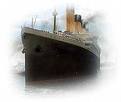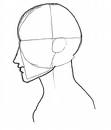WHAT YOU KNOW FROM THE HISTORY OF EDUCATION?
The issue of educating young people is an urgent problem today. The older generation faces an important task of educating valuable individuals for society, both in terms of character, and education. The problem is not new. Beginning of the discussion about: family or state education, date back to ancient Greece. What were the directions in education, as upbringing was once understood, history of culture teaches us. A few questions in this area would probably not hurt.
1. When Russian women began to study at universities?
2. What ancient state was famous for the strict upbringing of youth?
3. When the first Polish technical university was established?
4. Who founded the Paris Sorbonne?
5. Where in Poland, w XVI w., the first Protestant gymnasium was established?
6. When children's literature begins to develop?
7. What an excellent Czech teacher from the 17th century?. spent a large part of his life in Poland?
8. What was the greatest work of pedagogical literature of the Age of Enlightenment?
9. When the first Polish "Ministry of Education" was established”?
10. Who published the first Polish pedagogical journal?
Answers:
1. The struggle to admit women to universities has been played out; in Europe in the second half of the 19th century. In Russia, Konstanty Bestuzhev-Ryumin threw in 1867 R. the thought of making available to them studies in some faculties, and later founded higher courses for women himself, which was visited by many Polish women. The cadres of the first female students in Russia were at the same time the vanguard of progressive social movements.
2. Sparta was famous for the strict upbringing of youth, supervised by the state. Boys to 7 for years they grew up at home, and then in post-military schools. They were trained in discipline, they were taught to endure hunger, thirst and discomfort. Much attention was paid to physical education, not caring about educating the mind.
3. The first Polish technical university was established in Warsaw in the era of the Kingdom of Poland, on the initiative of Stanisław Staszic. The idea was to provide the country with trained technical officials and engineers, which previously had to be imported from abroad. W 1826 R. a Preparatory School was opened, which 4 years later it turned into a University of Technology. It was closed after the November Uprising.
4. To facilitate the livelihood of students, dormitories for young people and colleges for professors were established at medieval universities. From the founder of one of the largest theological colleges, Roberta Sorbonne, later took the name of the University of Paris, which throughout the middle ages was the main center of theological studies.
5. The first Protestant gymnasium was established in Pińczów, in Kielce. It had good teachers, mostly foreigners, m. in. French by Piotr Statoriusz, to whom should be attributed a strong development of the school (to year 1568). This school was even called the upper "Sarmatian Athens". The novelty was the wider consideration of the national language and the learning of Greek in the highest class.
6. Makuszyński's and Tuwim's predecessors, as classic authors of children's literature one should look for in our 19th-century writings. The foundations in this field were provided by Klementyna Tańska Hoffmanowa and Stanisław Jachowicz, author of graceful "Fairy Tales and Tales” (1824). At that time, the first magazines are also created, and even "Diary for children”, edited by Jachowicz.
7. Jan Amos Comenius, member of the Protestant group - Czech brothers, after the defeat of the Czechs at Biała Góra, he settled in Poland in 1628 R. He was a teacher in Leszno. He has developed a new textbook for learning Latin, which made him famous. He wrote the work “Great Didactics”. During the "deluge” he enthusiastically received Karol Gustaw, for which he was later expelled from Poland.
8. The most outstanding pedagogical work of the Age of Enlightenment is undoubtedly "Emil” Jan Jakub Rousseau. It is a philosophical treatise in the garment of a novel. Author, starting from the assumption, that civilization brings evil with it, proclaims the thesis of "natural education” along the line of good inborn tendencies. The work was read greedily. The Paris court sentenced them to be burned by the executioner.
9. National Education Commission, created in 1773 R., we can call it the first Polish Ministry of Education. It covered the entirety of education. Within 20 years has done a tremendous work, introducing many achievements of the Enlightenment into Polish culture, ensuring recognition of the principle of state and secular schools, reforming universities, educating teachers, by publishing Polish textbooks etc..
10. Ewaryst Estkowski, an outstanding Polish journalist and pedagogue, in year 1848 he founded the first Polish Pedagogical Society in Poznań, and in the years 1849-1853 he published the "Polish School”, the first professional magazine for teachers. He made a great contribution to the promotion of education in the Grand Duchy of Poznań. His pedagogical views have largely retained their value to this day.





